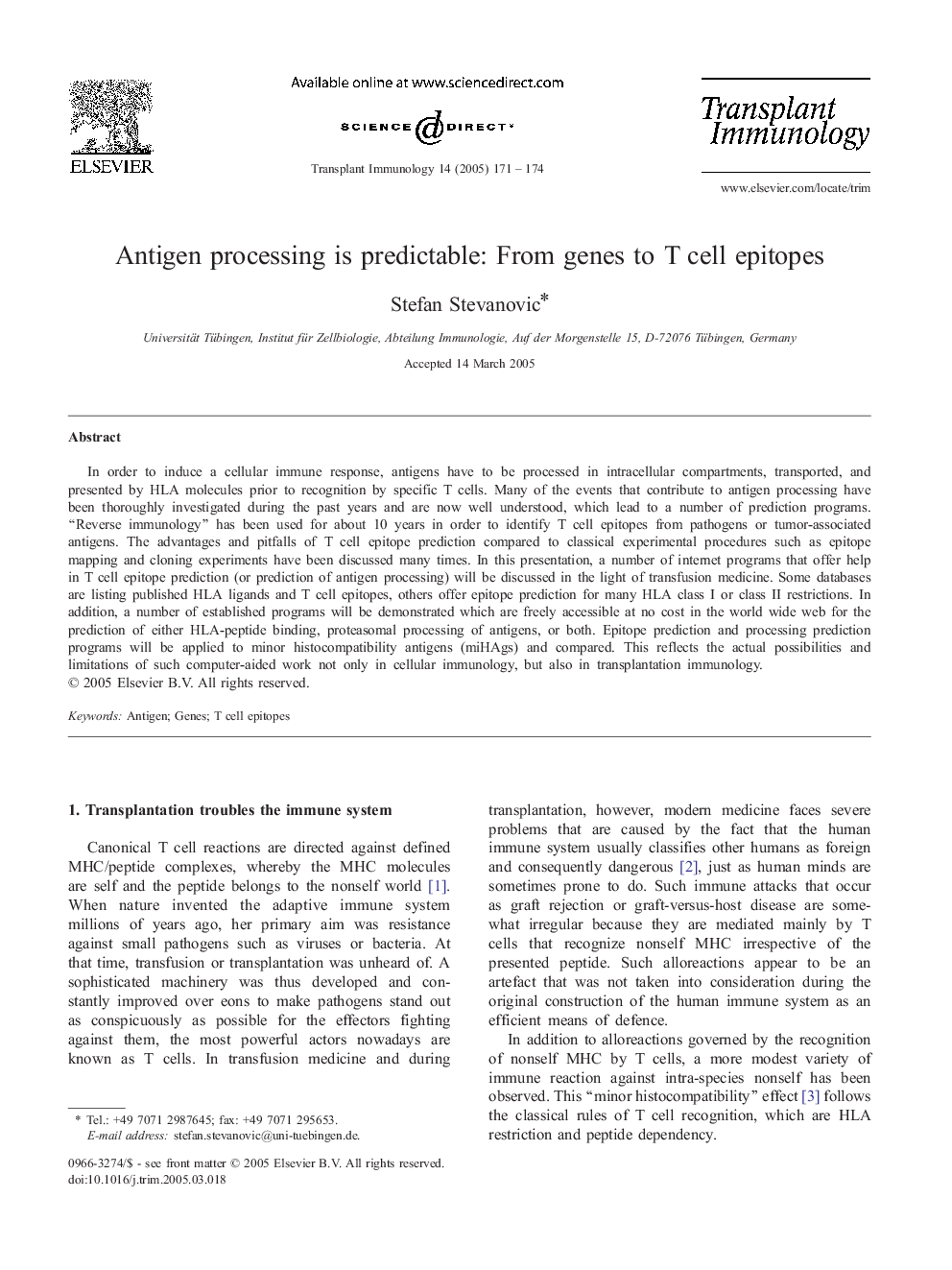| Article ID | Journal | Published Year | Pages | File Type |
|---|---|---|---|---|
| 9273797 | Transplant Immunology | 2005 | 4 Pages |
Abstract
In order to induce a cellular immune response, antigens have to be processed in intracellular compartments, transported, and presented by HLA molecules prior to recognition by specific T cells. Many of the events that contribute to antigen processing have been thoroughly investigated during the past years and are now well understood, which lead to a number of prediction programs. “Reverse immunology” has been used for about 10 years in order to identify T cell epitopes from pathogens or tumor-associated antigens. The advantages and pitfalls of T cell epitope prediction compared to classical experimental procedures such as epitope mapping and cloning experiments have been discussed many times. In this presentation, a number of internet programs that offer help in T cell epitope prediction (or prediction of antigen processing) will be discussed in the light of transfusion medicine. Some databases are listing published HLA ligands and T cell epitopes, others offer epitope prediction for many HLA class I or class II restrictions. In addition, a number of established programs will be demonstrated which are freely accessible at no cost in the world wide web for the prediction of either HLA-peptide binding, proteasomal processing of antigens, or both. Epitope prediction and processing prediction programs will be applied to minor histocompatibility antigens (miHAgs) and compared. This reflects the actual possibilities and limitations of such computer-aided work not only in cellular immunology, but also in transplantation immunology.
Keywords
Related Topics
Life Sciences
Immunology and Microbiology
Immunology
Authors
Stefan Stevanovic,
